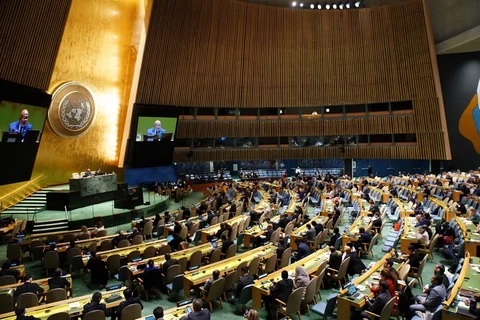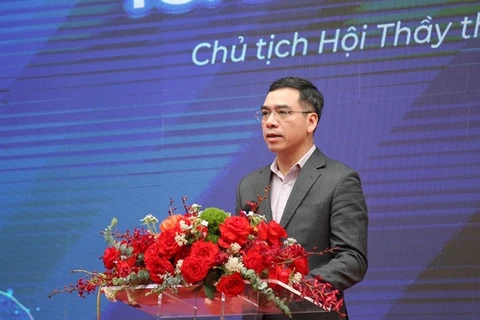Hanoi (VNA) – The building of legal regulations related to virtual assistants in particular and artificial intelligence (AI) applications in general in Vietnam has been drastically implemented, said Deputy Minister of Information and Communications (MIC) Nguyen Phu Tien at a press conference in Hanoi on April 8.
The official underlined that one of the tasks stated in a decision issued by the Prime Minister on January 26, 2021, on the national strategy on AI research, development and application until 2030 is to build and improve policies and laws to create an open legal corridor to meet the requirements of promoting research, development, and application AI in life.
Under the decision, the MIC is tasked to build, complete, and supplement legal documents regarding electronic transactions, he said, adding that the ministry is actively researching, building, and supplementing relevant decrees and circulars, including those in establishing and sharing data on testing institutional frameworks (sandboxes) and creating a favourable testing space with its own legal policy framework to conduct AI testing in areas with high potential.
At the same time, it has advised the Government to issue a decree on managing, connecting, and sharing digital data among State agencies, while building technical standards and regulations defining AI technology and products, said Tien.
Other relevant ministries and agencies are also drastically implementing their assigned tasks in the work, the MIC Deputy Minister said.
He affirmed that the overarching viewpoint in developing legal regulations related to virtual assistants is putting the people and businesses at the centre of AI development and application, avoiding technology abuse and infringement of legitimate rights and interests of organisations and individuals.
Many businesses have committed to accompanying the ministry in building a legal environment that ensures the rights and interests of individuals and organisations in the online environment but does not inhibit the development of society, the official said./.
The official underlined that one of the tasks stated in a decision issued by the Prime Minister on January 26, 2021, on the national strategy on AI research, development and application until 2030 is to build and improve policies and laws to create an open legal corridor to meet the requirements of promoting research, development, and application AI in life.
Under the decision, the MIC is tasked to build, complete, and supplement legal documents regarding electronic transactions, he said, adding that the ministry is actively researching, building, and supplementing relevant decrees and circulars, including those in establishing and sharing data on testing institutional frameworks (sandboxes) and creating a favourable testing space with its own legal policy framework to conduct AI testing in areas with high potential.
At the same time, it has advised the Government to issue a decree on managing, connecting, and sharing digital data among State agencies, while building technical standards and regulations defining AI technology and products, said Tien.
Other relevant ministries and agencies are also drastically implementing their assigned tasks in the work, the MIC Deputy Minister said.
He affirmed that the overarching viewpoint in developing legal regulations related to virtual assistants is putting the people and businesses at the centre of AI development and application, avoiding technology abuse and infringement of legitimate rights and interests of organisations and individuals.
Many businesses have committed to accompanying the ministry in building a legal environment that ensures the rights and interests of individuals and organisations in the online environment but does not inhibit the development of society, the official said./.
VNA























